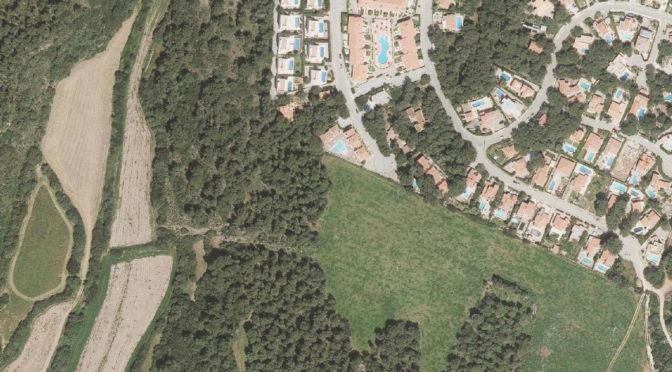Views: 244
At the same time that hundreds of people were presenting objections following the model made available by GOB, the association also submitted a large document with ideas for improving many of the provisions that appear in the texts of the PTI (Pla Territorial Insular, Territorial Planning for the next years) that have been available for public scrutiny for 40 business days.
There are many references to the problem of water and the conservation of aquifers. Making provision for the use of rainwater cisterns and of residual waters, wherever possible, is requested, in order to achieve savings from 50% in buildings of traditional nuclei and up to 100% in new tourist areas or from kitchen gardens. It is also requested that car parks of a certain dimension when they are paved should have drains and below ground cisterns for rainwater collection in new urbanisations.
On the subject of energy, criteria are proposed to animate local economic participation in the implementation of renewable energies to make significant savings in new construction and tourist activities, as well as the obligation to cover energy requirements with renewable energy systems for existing buildings and for other initiatives on the island.
GOB is asking to put serious restrictions on the possibility of installing facilities on rural land, which can then serve urbanizations. It is requested that it should be only possible to make public services on common rural land and with an extension time limit.
In tourist accommodation in the countryside, the need to regulate the number of swimming pools (much discussed these days) has been raised, and an annual maximum quota of places is proposed with preference to agrotourism. It is also asked that demolition should take place of any work that has been made for tourism if it is not used as such any more. There are examples of agrotourisms that have enlarged their accommodation capacity then sold off parts to individuals with no tourist activities so that, in reality, houses are being added into the countryside for real estate speculation.
Concerning restaurants in rural areas, it is asked that the criteria from the last PTI should be recovered so that they are allowed only on common rural land and in places where there is tourist accommodation already or where there is authorised rural tourism.
There are also references to questions of landscaping: how to incentivise the burying of aerial cables; an obligation to maintain the practice of dry walling without cement; lining or landscaping the cement edges of roads; or taking note for incorporating flowering times as a criterion in the management of paths and roads.
Criteria are proposed for limiting the number of new agricultural buildings on each farm and link the agricultural use of these new buildings in the property register.
The document of objections included references for not permitting the overwintering of boats on rural land, nor allowing hotel bedrooms in areas of less than 60 square meters, and incorporating inspections for following the PTI regulations to be carried out by the Consortium of urban discipline.
GOB is grateful for the collaboration of many people to prepare the analysis of the proposals for improving the Plan, as well as the people who have presented their own objections as private individuals or public entities. It is considered that this phase of the public scrutiny has had a lot of public participation and interest. Now a new phase starts to incorporate the maximum number possible of these proposals into the definitive wording of the PTI text.

